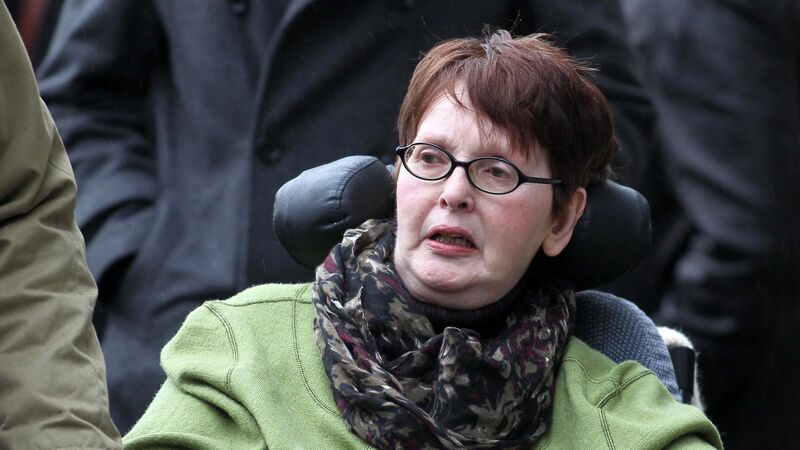Terry Prone: More of us support assisted dying — but still we have no discussion

Marie Flemings died naturally 10 years ago, after a long fight against the ban on assisted suicide. Picture: Sam Boal/RollingNews.ie
Try from €1.50 / week
SUBSCRIBE
Marie Flemings died naturally 10 years ago, after a long fight against the ban on assisted suicide. Picture: Sam Boal/RollingNews.ie
Jackie Kennedy had cancer, when cancer was almost always fatal. A paparazzo captured a shot of herself and her partner, Maurice Templesman, in Central Park. She was always thin, but now she was skeletal, swamped in a camel coat, a headscarf loosely fastened at her neck. She could have been anybody. Anybody sick and frail.
She was admitted to hospital for more tests, then released. Maybe a day later, she died, surrounded, according to the media of the time, by her family. Drinking coffee with my mother that week, I marvelled at the grim good fortune that had allowed her to leave the hospital which had confirmed they were fresh out of treatment options for her, and co-incidentally die a day or so later.
Already a subscriber? Sign in
You have reached your article limit.
Annual €130 €80
Best value
Monthly €12€6 / month
Introductory offers for new customers. Annual billed once for first year. Renews at €130. Monthly initial discount (first 3 months) billed monthly, then €12 a month. Ts&Cs apply.
CONNECT WITH US TODAY
Be the first to know the latest news and updates
Newsletter
Sign up to the best reads of the week from irishexaminer.com selected just for you.

Select your favourite newsletters and get the best of Irish Examiner delivered to your inbox
Sunday, February 8, 2026 - 9:00 PM
Monday, February 9, 2026 - 6:00 AM
Monday, February 9, 2026 - 6:00 AM
© Examiner Echo Group Limited